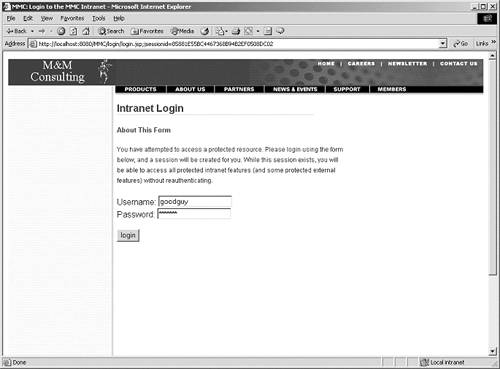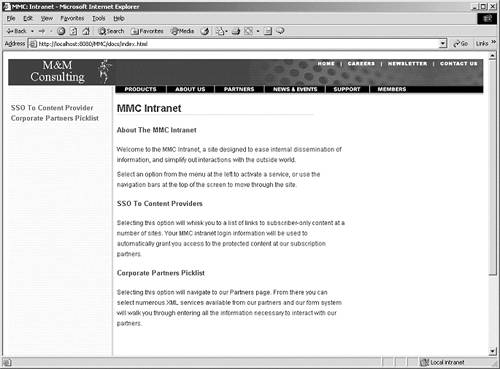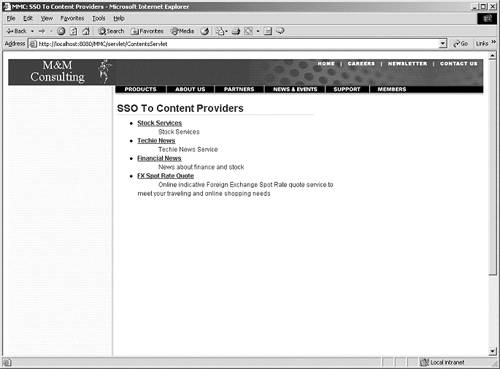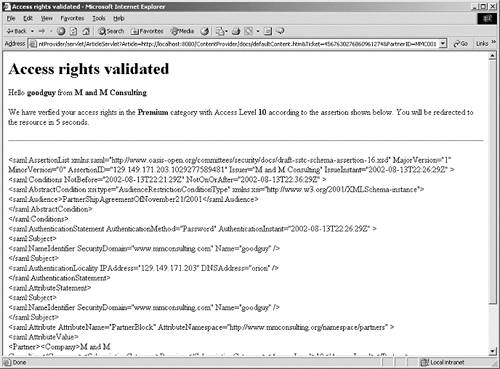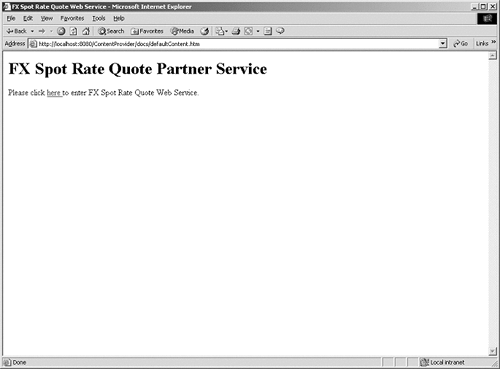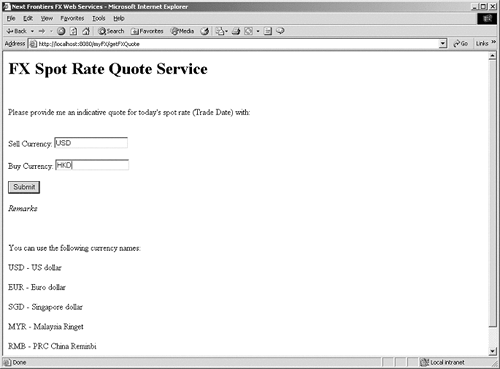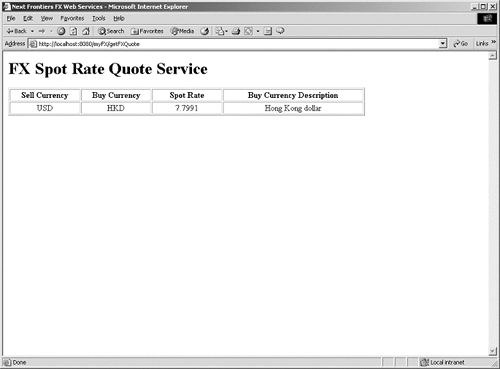8.5 User Experience
8.5 User ExperienceAfter the demo code is installed and deployed (refer to Appendix C, Demo Environment Set-Up), you should see the Single Sign-on page upon invoking the URL http://localhost:8080/MMC/docs/index.html (see Figure 8-12). If the software prerequisites (such as jSAML toolkit) are not properly installed and configured, users should not be able to see the "Intranet Login" screen in Figure 8-12. The Single Sign-on process will generate a one-time session id, prompt you for security sign-on, and validate your security credentials that are stored in your local PC or workstation. Figure 8-12. Single Sign-on Screen for the Demo Next, the demo system will bring you to a main menu (see Figure 8-13), which displays two major sets of functionality: SSO to Content Provider and Corporate Partners Picklist. The demo system has been customized to collaborate with the first option only. Click the "SSO to Content Provider" in the left-hand column. Figure 8-13. Main Menu of the Demo System The demo system should bring you to another menu page (see Figure 8-14) that displays all existing content providers that are integrated using Single Sign-on. The first three options require active Internet connectivity. Click the last option, "FX Spot Rate Quote." Figure 8-14. Single Sign-on to a List of Partner Services The demo system will retrieve your security credentials and company profile and compose a security access assertion request using SAML Assertion messaging protocol. For instructional purposes, the demo system will display the actual SAML message on the screen for five seconds (see Figure 8-15) and validate whether you have sufficient access rights to access the FX Spot Rate Quote Service. Figure 8-15. SAML Assertion Request to the Remote FX Quote Web Service Upon successful validation of your access rights with the target Service Provider (that is, FX Spot Rate Quote Service), the demo system will display a default Web page (see Figure 8-16), which prompts you to enter into the remote partner service (that is, FX Spot Rate Quote Service). Figure 8-16. Front Page to Accessing Remote FX Quote Web Service The Content Provider Servlet (aka Service Broker) of the demo system should be able to forward the FX Spot Rate Quote Service main page (see Figure 8-17) to the client. The FX Spot Rate Quote Service prompts the user to enter the Sell Currency and Buy Currency in 3-letter ISO currency codes. Once completed, the user can press the "Submit" button to request for an indicative FX quote. This is a current Spot Rate Quote, where the expected trade date is assumed to be today. Figure 8-17. FX Spot Rate Quote Web Service Page The FX Spot Rate Quote Service will look up the indicative price from the remote FX Quote Service, which is currently set to be a delay FX quote provided by xmethods.org . It will also look up its internal Reference Data (called "Profile" in this demo) in order to display the name of the Buy Currency code. The Request for FX Spot Rate Quote is then complete (see Figure 8-18). Figure 8-18. FX Spot Rate Quote Response |
